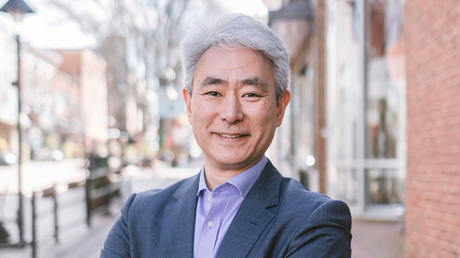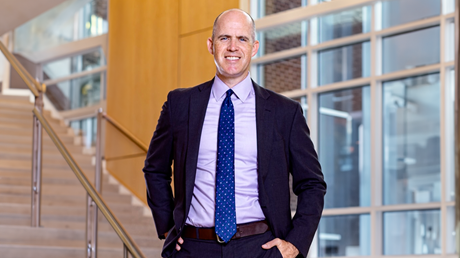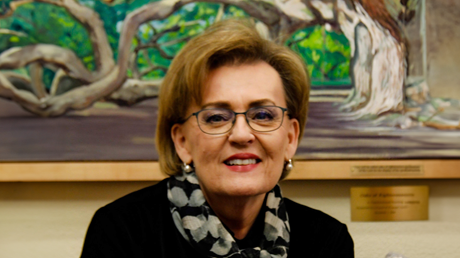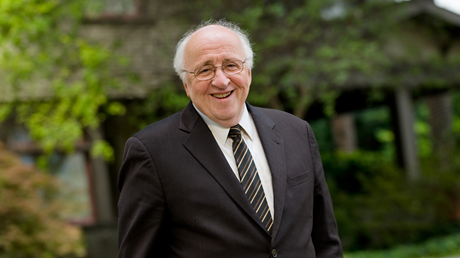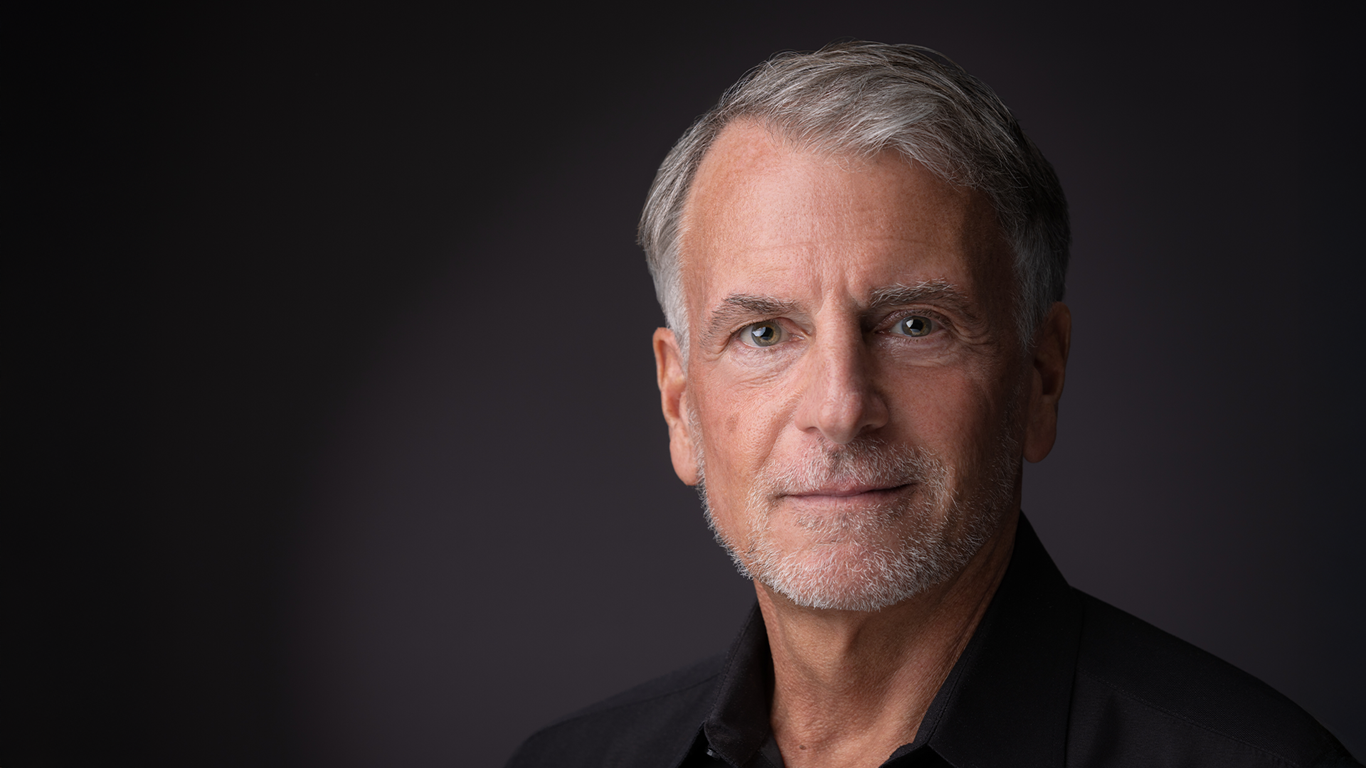
Will you help encourage and connect the church?
Give NowWill you help encourage and connect the church?
Give Now“One of the greatest blessings I received growing up was a deep invitation to develop your own personal relationship with Jesus,” says Stephan Tchividjian, the eldest grandchild of Billy and Ruth Graham. “I really believe this narrative cascaded from my grandparents.”
As a boy growing up in a family of seven children, Stephan Tchividjian, whose mother, Virginia “Gigi” Graham Tchividjian, is the eldest daughter of the Grahams, was surrounded by loving adults who spoke openly about their faith and actively encouraged Stephan and his siblings to develop their own relationship with God—one that emphasized honesty and candor through prayer, listening to the Holy Spirit, and even expressing doubts.
Stephan doesn’t take this for granted.
Tracing his own faith journey, Stephan points to a memory of becoming a Christian at the age of five when his family was living in Switzerland. “I believe that God had been working in my heart all along, but it was at that moment as a little child praying, ‘Dear Jesus, come into my heart’ that God actually did begin that work, though I didn’t understand it yet.”
When he was a college student, Stephan began to wrestle with his faith, asking himself if he was a Christian only because of the influence of his well-known family.“If I’d been raised in a Muslim or Hindu home, would I have the same belief systems and loyalties to those forms of belief and faith? I asked myself,” he says. Ultimately, Stephan came to the conclusion that Christianity is true and that his faith in God was real and not dependent on his family’s legacy.
He is grateful for his family’s spiritual guidance, particularly the way his parents regularly implored him to “go and talk to the Lord about it”—an admonition he now views as both wise parenting and practical theology. “I remember as a teenager getting into arguments with my parents about my curfew, and they would say, ‘You and the Lord talk about it, and let’s see what he says. Whatever he says, we’ll go with it.’ I thought it was a good idea at the time. As I got a little older, I came to realize that God was always on their side,” he says with a chuckle.
Now Stephan reflects on the faithful influence of his parents and grandparents, remarking that it was their “consistency and authenticity” that made Christianity attractive to him growing up. As the eldest grandchild, Stephan looks back fondly on his relationship with Billy Graham, affectionately known as “Daddy Bill” by his grandchildren.
Looking back, Stephan is amazed at how generous and intentional Graham was with his time, particularly during the most demanding years of his ministry. Stephan says that even in the midst of his grandfather’s busy event schedule and high-profile persona, he was present for the milestones and important moments, including Stephan’s confirmation in the Lutheran Church as a boy and later his wedding, where he officiated. He also had a close relationship with his grandmother, Ruth, whom he describes as “down to earth.” “We would talk at least a couple of times a month on the phone just to check in,” he says.
In one of the sharpest and most enduring memories of his childhood, Stephan recalls a rare privilege of being behind the scenes during one of Billy Graham’s crusades in the 1970s when “America’s pastor” was already a household name. “Daddy Bill” invited each of his grandchildren who were a certain age to shadow him during a ministry engagement.
Although it was nearly five decades ago, Stephan still has vivid memories of joining Daddy Bill for a crusade in San Diego. At the age of 12 or 13, outfitted in “a little coat and tie,” Stephen recounts that visit: “I just followed him everywhere he went. If he went to a TV interview, if he went to meet the mayor, if he was meeting with his team. I'm this little kid in an adult world.” Stephan recollects with nostalgia eating “a little hamburger and fries” with his grandfather at the hotel and being included as the older men were debriefing after the evangelistic event.
Stephan will never forget Graham’s gesture of love during a debriefing session with his ministry team: “He looked at me and said, ‘Stephan, do you have anything to add?’ I didn’t think much about it at the time. I hope I didn’t make a fool of myself, but what remains with me was the fact that I was seen.”
“This gesture from my grandfather has reminded me to look out for those who may feel unseen and to extend the love of Christ. Simply put, the gospel is that God sees me.”
The characteristics of humility and authenticity that Stephan points out in Billy Graham are also ones he sees reflected in the current ministry of Christianity Today. Stephan wishes Graham were alive today and could still be an “elder statesman” of Christianity, a voice of reason in our increasingly divisive and polarized society.
Stephan bemoans the current state of the American church. “It’s embarrassing when you have Christians attacking Christians,” he says. “But I do believe that it is at this time that our voice as believers is so desperately needed. There’s a Scripture verse that says, Be ready always to give a reason for the hope that's in you, and do it with gentleness and respect” (1 Pet. 3:15).
Today, Stephan believes that Christianity Today is “that voice of reason” that Billy Graham modeled. For those who have become disillusioned with the church, politics, and cultural divisiveness, he wants to be a person whom nonbelievers and those who are hurting approach because they see the hope of Christ in him and want to know how they can have it too. Stephan says, “I see Christianity Today as a voice of gospel hope, a source for stories and ideas that reflect the heart of God.”
Stephan also says, “I appreciate that CT’s stories regularly cause me to consider things that I hadn’t considered before or see things from an angle that perhaps I didn’t see before.” Stephan credits his experiences of growing up all over the world for instilling in him an appreciation for diverse perspectives within the church as well as cultivating empathy for those who may be outside the church, whether culturally or spiritually. “Our level of tolerance and love increasingly grows when we actually get to know the person rather than labeling them,” he says.
“CT is thought-provoking, but never at the expense of the character of God. CT is intellectually stimulating, but appeals to the emotional part of my heart and my deep longings. CT will push me just enough to make me think and feel like I’ve got to be engaged.”
Currently, Stephan serves as the Co-Founder and CEO of the National Christian Foundation of South Florida, where he is helping Christians think more deeply about how to steward their resources and invest in the work of God’s kingdom, not only with their money but with their time and talents as well. He is also an associate pastor at Calvary Chapel Fort Lauderdale and serves on a variety of for-profit and nonprofit boards. Stephan’s passion is for the bride of Christ to unite around the biblical mission to share the good news around the world, and he sees his and his wife Lisa’s annual financial support of Christianity Today as an extension of this calling.
Stephan believes that CT has held fast to the vision his grandfather had when the ministry was founded 68 years ago. “My grandfather was criticized often for taking certain positions, his embracing of the Catholic community and his embrace of the Civil Rights Movement, for example. There were quite a few times of courage when he said, ‘Now I’m going to do this, even when it may be misunderstood amongst fellow believers, because this is what God has called me to do.’” As Stephan compares and sums up CT’s calling, he adds, “We’re here to honor and glorify the heart of God.”
Melissa Huff is foundation relationships manager at Christianity Today.


